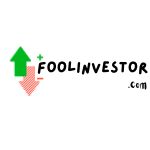Debt is often seen as a negative concept, but it is not always a bad thing. In fact, there are situations where taking on debt can be beneficial and even necessary. The key is to understand how to use debt wisely and manage it effectively. In this article, we will explore the topic of debt, including the pros and cons, how to use it wisely, and how to manage it.
Pros and Cons of Debt –
Debt can provide individuals and businesses with access to capital that they may not have otherwise. This can be particularly beneficial when making large purchases or investments. For example, taking out a mortgage to buy a home is a common way to use debt. Another example is taking out a business loan to start or expand a business.
However, debt also comes with risks. The most obvious risk is the potential for default, which can lead to financial ruin. Additionally, carrying too much debt can impact an individual’s credit score, which can make it more difficult to obtain credit in the future. Finally, interest rates and fees associated with debt can add up quickly, leading to high monthly payments and potentially long repayment periods.
Using Debt Wisely To use debt wisely, it is important to only take on debt that is necessary and affordable. For example, taking out a mortgage to buy a home may be necessary for many people, but taking out a loan for a luxury car may not be.
Additionally, it is important to carefully consider interest rates and fees associated with debt, as well as the repayment period. This can help ensure that monthly payments are manageable and that debt is paid off in a timely manner.
Another way to use debt wisely is to take advantage of low-interest rates. For example, taking out a low-interest rate loan to consolidate higher interest rate debt can save money in the long run. Similarly, using credit cards with rewards programs can help offset the cost of debt if the balance is paid off in full each month.
How to Manage your Debt ?
Managing Debt Managing debt effectively involves making payments on time, avoiding additional debt, and paying off debt as quickly as possible. This can be accomplished through budgeting, prioritizing debt payments, and exploring debt consolidation options if necessary.
Budgeting involves tracking income and expenses to ensure that there is enough money to cover debt payments each month. This can be done using a spreadsheet, online tool, or budgeting app. Prioritizing debt payments involves paying off high-interest rate debt first, as well as making minimum payments on all other debts to avoid default.
Finally, exploring debt consolidation options can be helpful for those with multiple debts. Debt consolidation involves combining multiple debts into one loan with a lower interest rate and/or lower monthly payment. This can make debt more manageable and help individuals pay off debt more quickly.
Conclusion Debt can be a useful tool when used wisely, but it can also be a burden when mismanaged. To use debt wisely, it is important to only take on necessary and affordable debt, consider interest rates and fees, and manage debt effectively through budgeting, prioritizing debt payments, and exploring debt consolidation options if necessary. With these tips, individuals can make debt work for them rather than against them.
Moreover, it is not a financial suggestion. Try to consult with your financial advisor before taking any decision.

